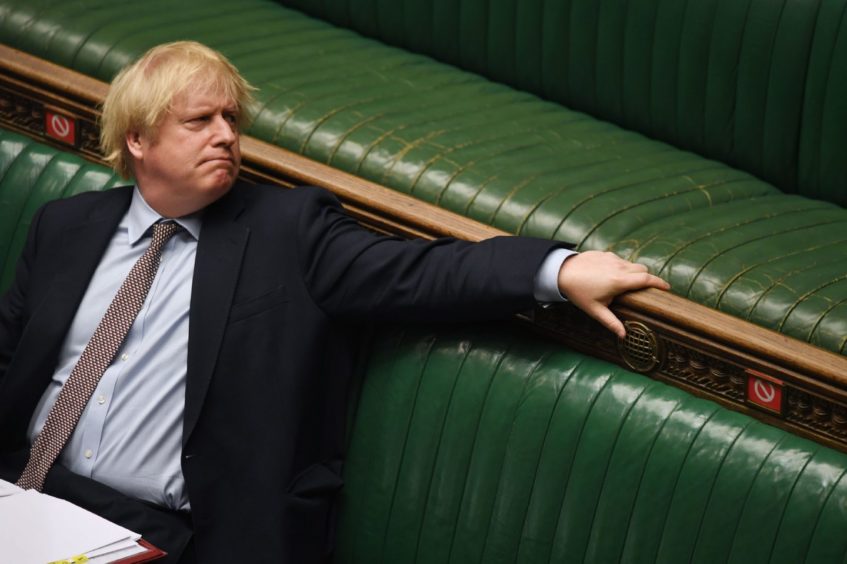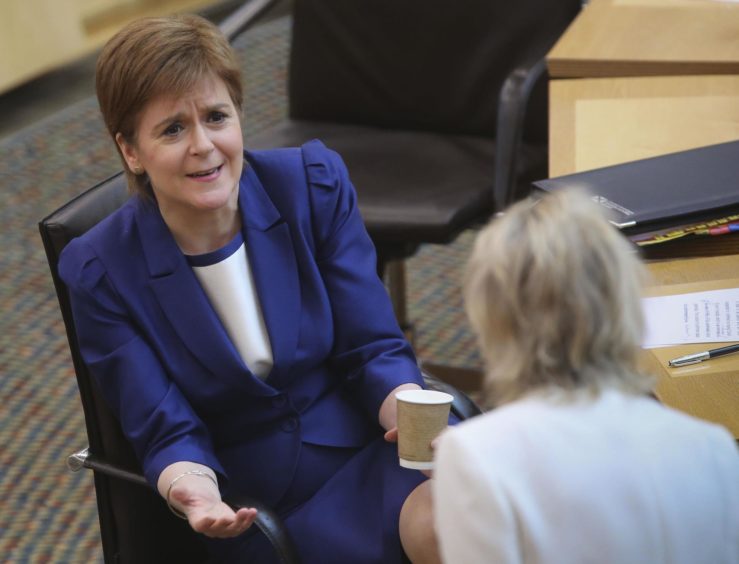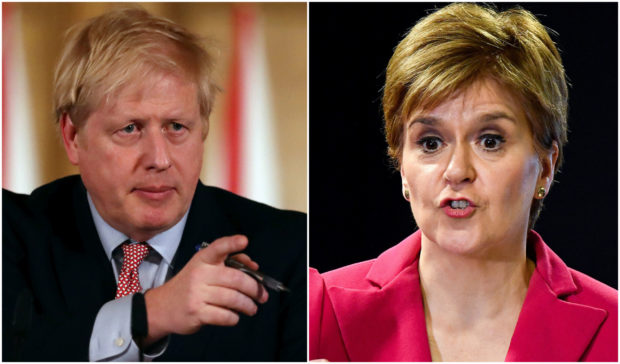Cooperation and consensus were the buzzwords at the start of the Covid-19 crisis, warring political parties promised to set their differences aside to work for Britain’s greater good and daily skirmishes over Brexit and independence would stop in order to focus on the pandemic – or so we were told. Dan O’Donoghue and Tom Peterkin examine the UK’s fraying Covid truce.
Boris Johnson insisted at the outset of the pandemic that he wanted a cross-party, cross-UK consensus in the battle against Covid-19, and, for several weeks, he has had just that.
But missed testing targets, protective equipment shortages, the highest death rate in Europe, bungled messaging, the Dominic Cummings scandal and controversial moves on schools, quarantine and the return of Parliament has smashed that united front.
If there was any doubt that the Covid truce was over, look no further than today’s prime minister’s questions.

After a 10-day parliamentary hiatus, in which Downing Street adviser Dominic Cummings flouted lockdown rules and Mr Johnson downgraded the lockdown in England, despite the infection alert level remaining at level 4, the feeling ahead of the weekly head-to-head between Johnson and Keir Starmer was tense.
Labour had so far adopted a wait and watch strategy, rather than criticise, there were pleas for information and reassurances and even – as we found out today – behind-the-scenes letters offering to help and work with the government.
But, now was the moment to strike – and strike Starmer did.
The Labour leader dropped the Atticus Finch routine and dialled it up to Tom Cruise in A Few Good Men, inviting Johnson to channel Jack ‘you can’t handle the truth’ Nicholson.
Indeed the prime minister, rather like Donkey Kong, responded to questions by angrily banging and thumping on the despatch box, furiously hurling rebukes at Starmer.
After that terse half-hour display, you can forget any Commons consensus going forward.
As for cross-border relations, prior to the pandemic the relationship between Downing Street and Bute House was at rock bottom.
No issue seemed too big for a petty squabble, whether climate change or the drug death crisis, Johnson and Nicola Sturgeon were not able to get on the same page.
In response to the pandemic in February, however, both leaders promised to work together in a “four-nations” approach.
Fast forward three months and that good-will has all but evaporated, with the familiar claims that “Scotland is being ignored” returning to the debate.
Meanwhile, in Scotland, Ms Sturgeon has faced a similar onslaught to Mr Johnson over her handling of the coronavirus crisis.
The first minster has faced allegations Scotland did not go into lockdown quickly enough, costing thousands of lives, as well as claims that not enough was done to combat the spread of the virus when it was introduced at a Nike conference in Edinburgh.

In addition to that, Ms Sturgeon and her Health Secretary, Jeane Freeman, have been attacked over the care home crisis, with concerns raised about the number of patients discharged from hospital into care homes at the outset of the crisis.
The lack of testing in care homes has also figured prominently as the Conservatives and Labour have gone on the attack.
The constructive tone that was witnessed at first minister’s questions during the early days of the pandemic has been replaced with a far more hard-nosed approach as major questions over the Scottish Government’s strategy have emerged.
Another sure sign that politics is reverting to type in Scotland has been the return of constitutional politics when it comes to both Brexit and Scottish independence.
This week, Ms Sturgeon has attacked the UK Government for its approach on EU withdrawal, suggesting that it would be “deeply irresponsible and reckless” to plough ahead with a no-deal Brexit at the end of the year.
Meanwhile, SNP politicians, including the likes of Joanna Cherry MP, have been arguing that the coronavirus crisis should trigger a new case for Scottish independence.
On the other side of the divide, the likes of Tory MSP Murdo Fraser have been arguing that the outbreak would have been a disaster for an independent Scotland without the “broad shoulders” that come with being in the UK.
The resumption of political hostilities north and south could not come at a worse time; as the UK starts to collectively ease lockdown, public confidence and trust will be key to the next phase of managing the pandemic.



